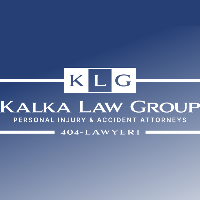In the United States, each state is responsible for their insurance regulations, this means that insurance laws vary from state to state. It is important to understand how your state's insurance system works, especially when it comes to automobile accidents. There are two main insurance types, at-fault or tort insurance system and no-fault insurance system. The latter tends to be a more recognized term, and as such Georgia residents may wonder if their state is a no-fault insurance state.
What is No-Fault Insurance?
No-fault insurance is a system where drivers who have been in a car accident are compensated by their own insurance providers, regardless of who was at fault for the accident. Under a no-fault system, each driver's insurance policy pays for their medical expenses and certain other damages, such as lost wages. In this way, no-fault insurance is meant to streamline the insurance claim process and allow you to receive the compensation you need without waiting for an insurance investigation into who was at fault and whose insurance will be paying for the accident. The drawbacks of no-fault insurance are that they reduce your ability to seek significant compensation after you have been in an accident by suing the responsible individual. Policyholders may be unable to seek compensation for pain and suffering, emotional distress, and other non-economic damages, unless their injuries meet certain thresholds of severity. Another drawback to no-fault insurance is that if you are in an accident, your insurance premium could be raised even if the accident was not your fault, because your insurance provide had to pay out compensation to you for your injuries and vehicle repairs or replacement. This can fill people with a real sense of injustice, feeling like they are being punished for not doing anything wrong.
Is Georgia a No-Fault Insurance State?
No, Georgia is not a no-fault insurance state. The state of Georgia follows a traditional tort system for handling automobile accident claims. In a tort insurance system, the at-fault driver's insurance company is responsible for paying for the damages incurred by the other party or parties involved in the accident.
How Does Georgia's Tort Insurance System Work?
There are a number of things to understand about how an at-fault, tort insurance system works compared to a no-fault system.
1. Fault Determination: One of the main components of a tort system is determining who is at fault in a car accident. The insurance company of the driver who is found to be responsible for the accident will be liable for covering the damages resulting from an accident. The at-fault driver's insurance provider will typically have to pay for the other driver’s medical expenses, vehicle repairs, and other losses.
2. Personal Injury Claims: In a tort-based insurance system like Georgia's, people who have suffered injuries in automobile accidents have the right to pursue personal injury claims against the at-fault driver. This means that injured parties can seek compensation for not only medical bills, lost wages, and property damage, but also for non-economic damages such as pain and suffering. The at-fault driver's insurance company must pay out these damages through a settlement or through a lawsuit if a settlement cannot be reached.
3. Comparative Negligence: Another important factor with at-fault insurance system’s is comparative negligence. Georgia follows a modified comparative negligence rule, which means that if you are found to share some of the fault for the accident, your recovery of damages may be reduced based on the percentage you are found to be at fault. If you are more than 50% responsible for the accident, then you may be barred from recovering damages altogether.
Speak With An Injury Lawyer in Georgia About Tort Insurance Systems
While Georgia is not a no-fault insurance state, it's essential for drivers to understand how the state's tort system operates in the event that they are involved in an automobile accident in Marietta. Knowing your rights and obligations under Georgia's insurance laws can help you navigate the claims process more effectively and ensure that you receive fair compensation for any damages you incur in an accident. If you're ever unsure about your rights or need assistance with an insurance claim, consulting with an experienced personal injury attorney can provide valuable guidance and support.




